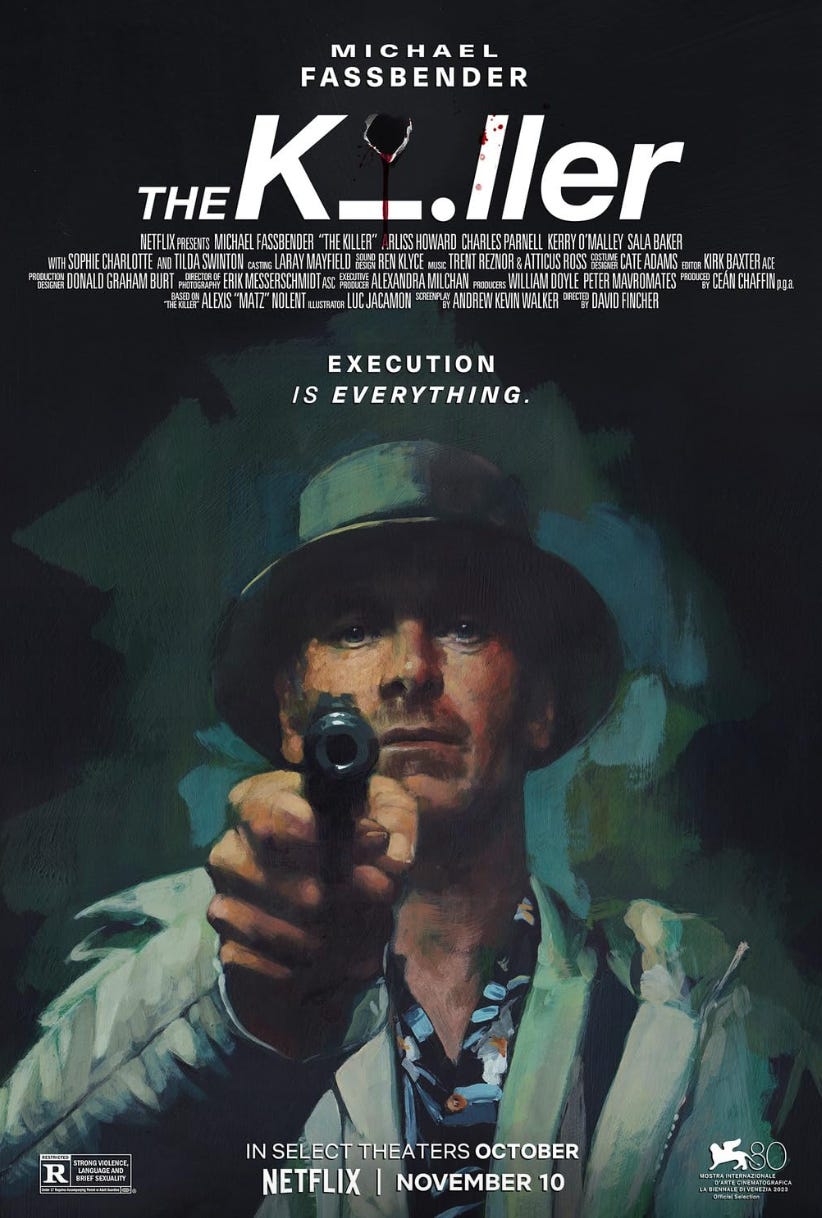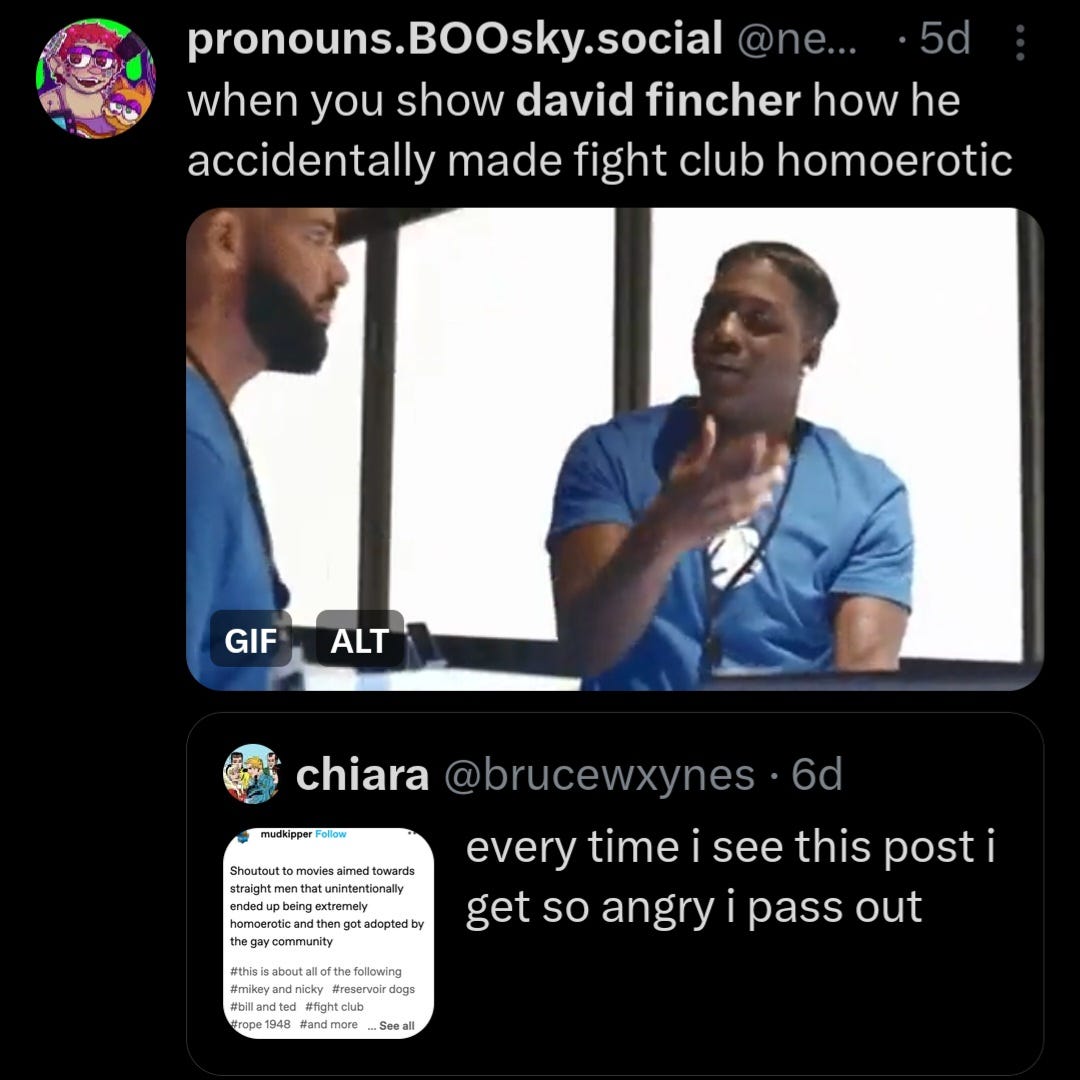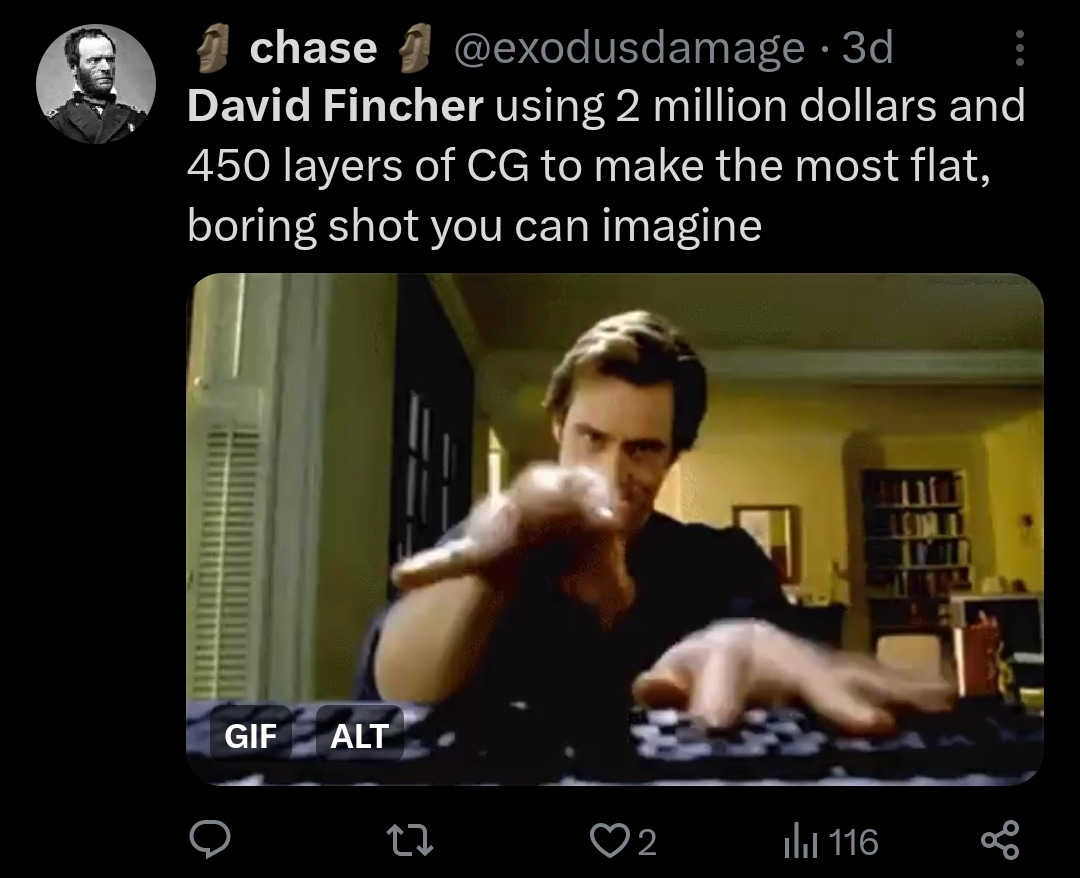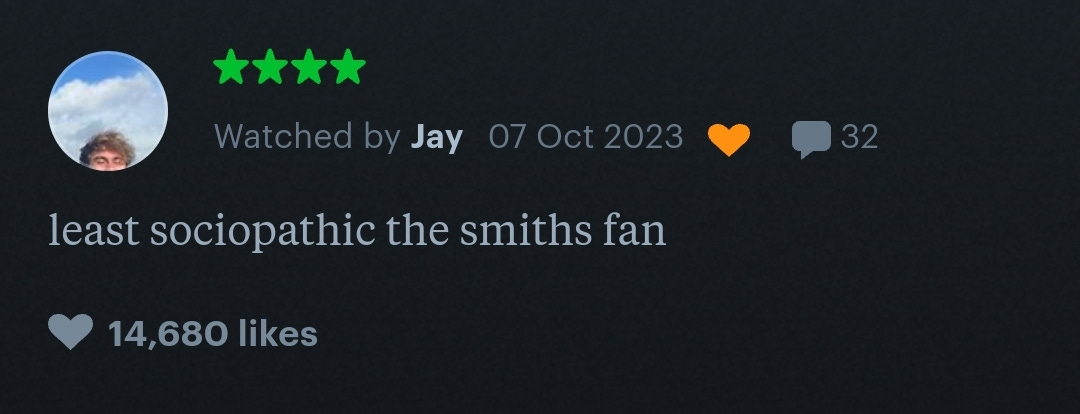Directed by David Fincher
Year: 2023
Language: English
Shaun’s Score: 3.9/5 ★
Before Watching:
David Fincher likely has the highest ratio among American directors of work everyone knows to name anyone remembers. He’s directed staple thrillers like The Game (1997), Zodiac (2007), Gone Girl (2014), and The Girl with the Dragon Tattoo (2011). Rah rah ooh la-la, he’s had a Brad Romance with Se7en (1995), Fight Club (1999), and The Curious Case of Benjamin Button (2008). For Christ’s sake he even directed the music videos for “Vogue” and “Suit & Tie”—after two Emmys, two Grammys, a BAFTA (for his best film, The Social Network [2010]) and a (frankly, useless) Golden Globe, it seems an Academy Award is the only Statue (of David?) he’s yet to collect. But when I tell people “Hey, Fincher has a new thriller on Netflix,” I’m met with vacant, searching stares and mouths more agape than the side of an Alaska Airlines flight.1
The Killer is, above all else, a joke on Fincher’s body of work and previous critiques thereof. Critics have called him too exacting, too precise,2 and too obsessive, so he responds with a meditative character study of an exacting, precise, obsessive assassin. This mysterious protagonist (Michael Fassbender) is unnamed, but cycles through a comically long list of aliases.3 His motto? WWJWBD: What would John Wilkes Booth do? His story opens in a stakeout in a Parisian WeWork,4 where he narrates his philosophy of life and (professional) death while awaiting the arrival of his next target. After an atypical misstep, he must pivot to clean up the mess.
For this assassin, killing (much like the creation of art for Fincher) has become a rigorously refined commodity. The film’s meticulous mise-en-scène inundates the viewer with a satirical ballet of product placements and snide remarks on ubiquitous brands and 21st-century creature comforts—beyond WeWork, we see McDonald’s, Airbnb, the endless barrage of e-scooters and rideshares, and even a parody of Equinox. In a world that communicates only in these exchanges, our protagonist has made peace with his narrow value in this system: a smooth trigger pull. The film itself executes this core idea as a seamless and addictive procedural, and right when you expect a signature Fincher twist, he has the last laugh—the big joke is now on you. You’re a mean one, Mr. Finch
Manohla Dargis is partly right in her take on the film: for a so-called thriller, it is disarmingly boring. And when you walk away from the theater, you don’t rethink much other than your willingness to pay for Equinox. Yet what eludes Dargis is the contextual brilliance within The Killer: a meta5-commentary on contemporary creation, cleverly cloaked as a story of surgical destruction. David deserves better, but we know how critics work by now—you give them a finch, and they’ll review the whole aviary.
The Killer premiered in competition at the 80th Venice International Film Festival, and can now be streamed on Netflix.
After Watching:
Tilda Swinton really has a way of appearing where you least expect her. Shame on Fincher for including the joke that she looks like a Q-Tip, but I did laugh out loud.
For such a meticulous and clinical hitman, the protagonist does break his core rules quite a bit. He goes after The Brute and The Expert despite not being paid to fight those battles, he has no contingencies when his nail gun works too quickly on The Lawyer, and he shows empathy by letting Dolores “trip” down the stairs instead of just disappear. I appreciate this extra dimension in his character, but I’d also appreciate more development of where this mutation originated—I don’t buy that such a careful assassin would take a shot when an innocent woman is dancing in the way, so his mistakes cannot have been endemic all along.
At the end of the day, The Killer is a perfect example of what Fincher is best at: style. The film harps on details and logistics in a way that is neither exhausting nor unmotivated, setting up narrative tension and release in a careful cinematic meter. The assassin tracks down a taxi service and we wait patiently to understand his scheme, then later he buys specific items at Home Depot and we wait patiently to see how he’ll use them. After decades of increasingly convoluted plots about social media empire equity battles or the struggles of alcoholic screenwriters in Hollywood, Fincher pulls back to basics. What’s in the box? A plot so dry and absorbing, you won’t even consider talking about Fight Club.
Which is also one of the positively baffling critiques that Richard Brody levied against Parasite (2019).
Which, in my opinion, somewhat evokes Hollywood’s tendency to endlessly recycle and reboot IP endlessly under different names.
Rest in Peace.
Can I count “meta” as another Social Network pun?











